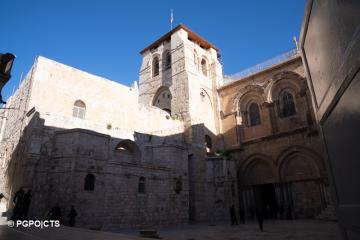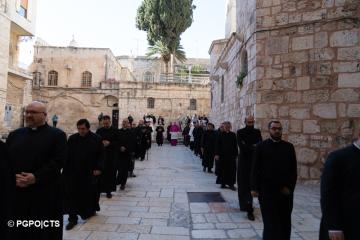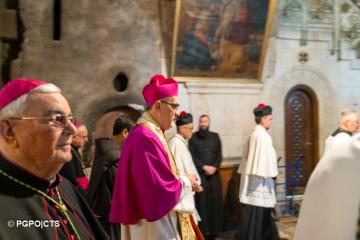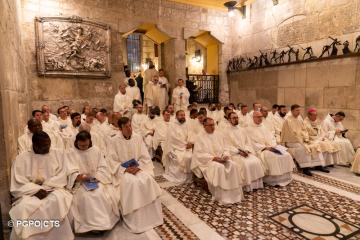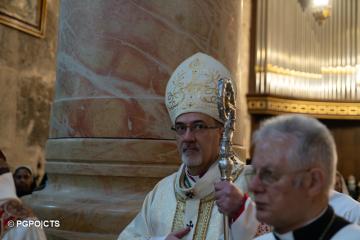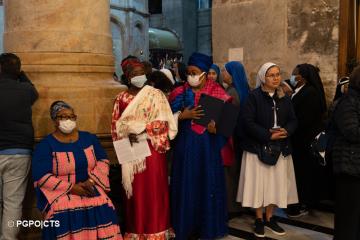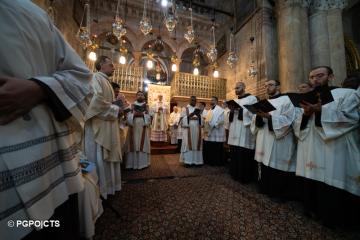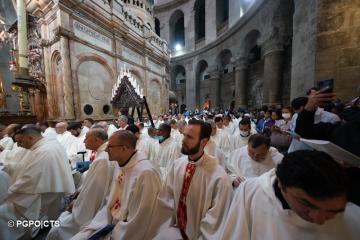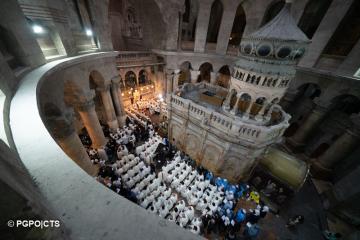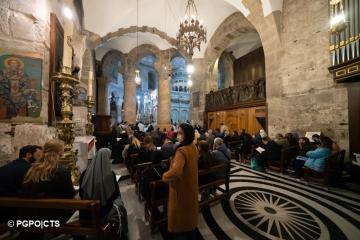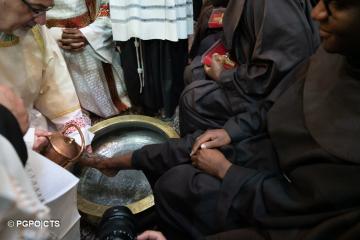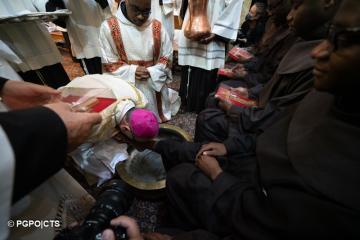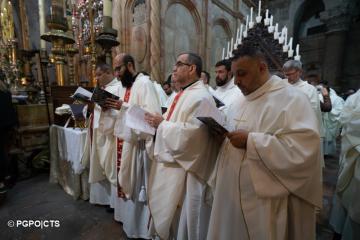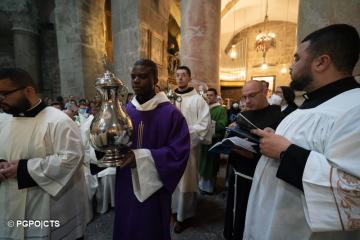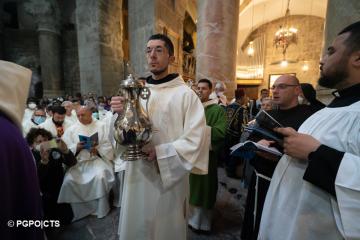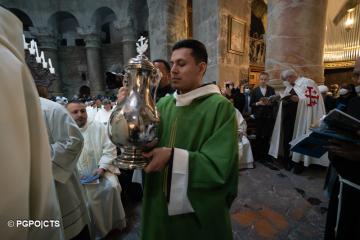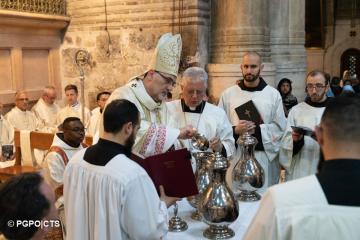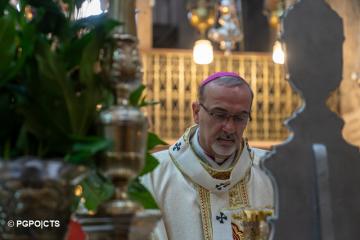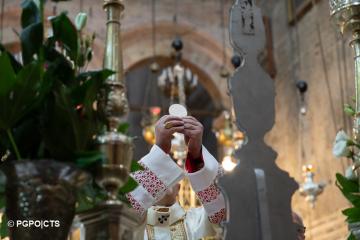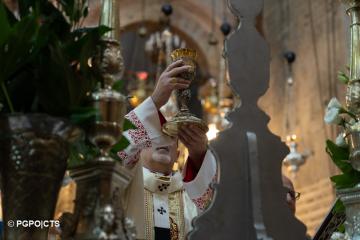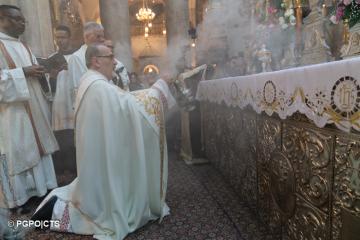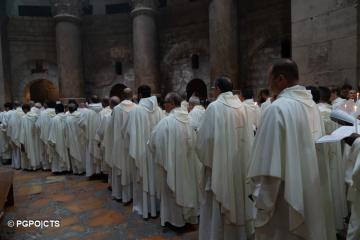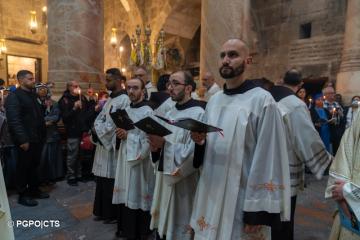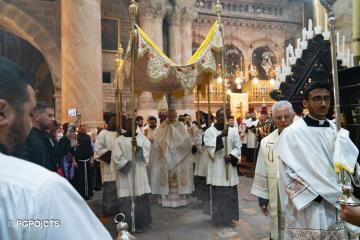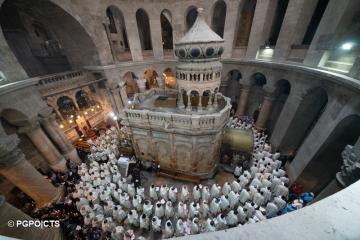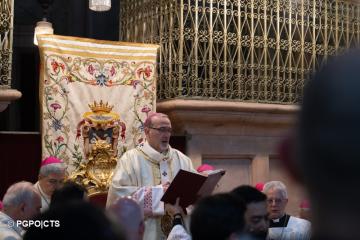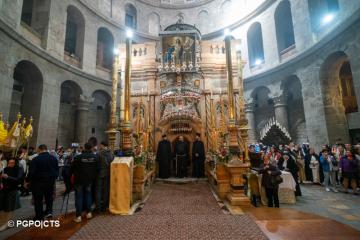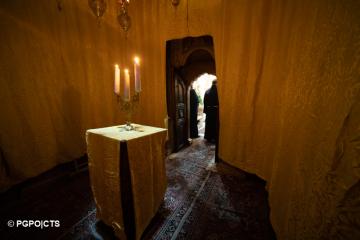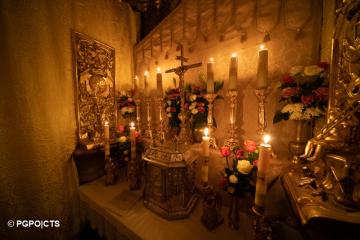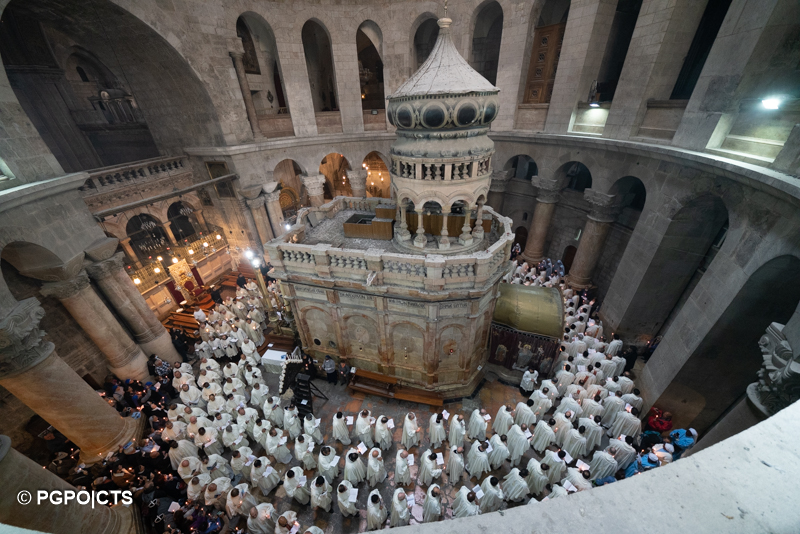
On Thursday 14 April 2022, His Beatitude Mons. Pierbattista Pizzaballa, opened the solemn liturgies of the Paschal Triduum with the celebration of the Missa in Cena Domini in the Basilica of the Holy Sepulchre.
Due to the unique rules of the Status quo, that regulate the times and the rhythms of the liturgical life in the main Basilicas of the Holy Land, the Mass in the Lord’s Supper here is brought forward to the morning.
On the evening when he was betrayed, Jesus, in the Cenacle, celebrated his Easter, anticipating his Cross and his Resurrection and giving Himself: this is the institution of the Eucharist, it is the great prayer of Jesus and of the Church. “Do this in memory of me”: obeying the command of Jesus, through the priestly ministry, makes all those who are nourished by His Body which he gave and His blood which was spilt take part in his Easter, in every place and at every time.
The Lord’s Supper, celebrated in the Basilica of the Holy Sepulchre, where both the Calvary and the Empty Tomb are to be found, makes the unity of the Paschal mystery and the relationship between the Lord’s table and the sacrifice of the Cross shine more immediately.
The evocative ritual of washing the feet has made visible, once again, the profound sense of the Eucharist and of the sacrificial offer of Jesus, the Lamb immolated on the altar of the Cross: his radical Love, until the very end, for his people.
Those who are nourished by the Eucharist can only live on the same love, making their lives a total gift at the service of their brothers.
With a vibrant and intense homily, the Patriarch spurred on the Church that lives in Jerusalem to go beyond looking, while dutiful and disillusioned, at the dramas that still afflict everyday and social life. “In this situation, the Easter of Jesus comes towards us, his giving himself to bring us together”. The Bishop forcefully asserted: “In the face of our fears, at the heart of our closures, of our barred doors, He makes his way not with the magic of easy solutions or with the contemptuous and superficial judgement, but with trust in the Father that is greater than fear and with love for his brothers that is greater than our closures.”
And highlighting how Jesus freely gave himself in the Eucharist and intothe hands of his enemies, he continued: “He does not flee the decision of Caiaphas, he does not contest the decision of Pilate, he does not threaten the torturers; and this is not because of any conventional pacifism or out of simple non-violent passivity, but to assert a new and truly victorious reaction: the reaction of trust in God and in the love for all”.
He then extended a strong invitation: "So allow me, as your Bishop, to address a word to the Church that has been entrusted to me by the Lord and that today lives in this celebration its most authentic epiphany. The word that I want to say is for everyone, before and beyond the albeit legitimate ministerial and charismatic distinctions that the Spirit arouses in us: “Let us return to the community”.
At the same Holy Mass, the Patriarch also consecrated the Holy Chrism and blessed the Holy Oils, which during the year will be used for the celebration of the Sacraments of Salvation and he accepted the renewal of the promises of the many Priests present.
The liturgy came to an end with the procession for putting the Most Holy Sacrament back: threetimes around the Edicule (the third time also included the Stone of Unction, passing in front of Calvary) before entering the Empty Tomb, where the Most Holy Sacrament was placed in the tabernacle, placed on the Lord’s Sepulchre. The Eucharist is the real, living and perennial presence of the Lord, who was Crucified here and who Rose for the Salvation of men.
In the secrecy and in the silence of the Tomb, the friars of the Custody and some faithful guarantee, in the name of the whole Church, the adoration of the Most Holy Sacrament for the whole day and the night, keeping vigil with Jesus at the time of Gethsemane.
Mons. Vincenzo Peroni


